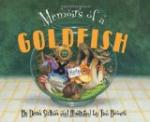We have a slaughter of this kind about once in two years. In return for these courtesies we are invited yearly by the elite to some two hundred dinners, about fifty balls and dances, and a large number of miscellaneous entertainments such as musicales, private theatricals, costume affairs, bridge, poker, and gambling parties; as well as in the summer to clambakes—where champagne and terrapin are served by footmen—and other elegant rusticities.
Besides these chic functions we are, of course, deluged with invitations to informal meals with old and new friends, studio parties, afternoon teas, highbrow receptions and conversaziones, reformers’ lunch parties, and similar festivities. We have cut out all these long ago. Keeping up with our smart acquaintances takes all our energy and available time. There are several old friends of mine on the next block to ours whom I have not met socially for nearly ten years.
We have definitely arrived however. There is no question about that. We are in society and entitled to all the privileges pertaining thereto. What are they? you ask. Why, the privilege of going to all these balls, concerts and dinners, of course; of calling the men and women one reads about in the paper by their first names; of having the satisfaction of knowing that everybody who knows anything knows we are in society; and of giving our daughters and son the chance to enjoy, without any effort on their part, these same privileges that their parents have spent a life of effort to secure.
Incidentally, I may add, our offspring will, each of them—if I am not very much mistaken—marry money, since I have observed a certain frankness on their part in this regard, which seems to point that way and which, if not admirable in itself, at least does credit to their honesty.
Now it is undubitably the truth that my wife regards our place among the socially elect as the crowning achievement—the great desideratum—of our joint career. It is what we have always been striving for. Without it we—both of us—would have unquestionably acknowledged failure. My future, my reputation, my place at the bar and my domestic life would have meant nothing at all to us, had not the grand cordon of success been thrown across our shoulders by society.
* * * * *
As I have achieved my ambition in this respect it is no small part of my self-imposed task to somewhat analyze this, the chief reward of my devotion to my profession, my years of industrious application, my careful following of the paths that other successful Americans have blazed for me.
I must confess at the outset that it is ofttimes difficult to determine where the pleasure ends and work begins. Even putting it in this way, I fear I am guilty of a euphemism; for, now that I consider the matter honestly, I recall no real pleasure or satisfaction derived from the various entertainments I have attended during the last five or ten years.




